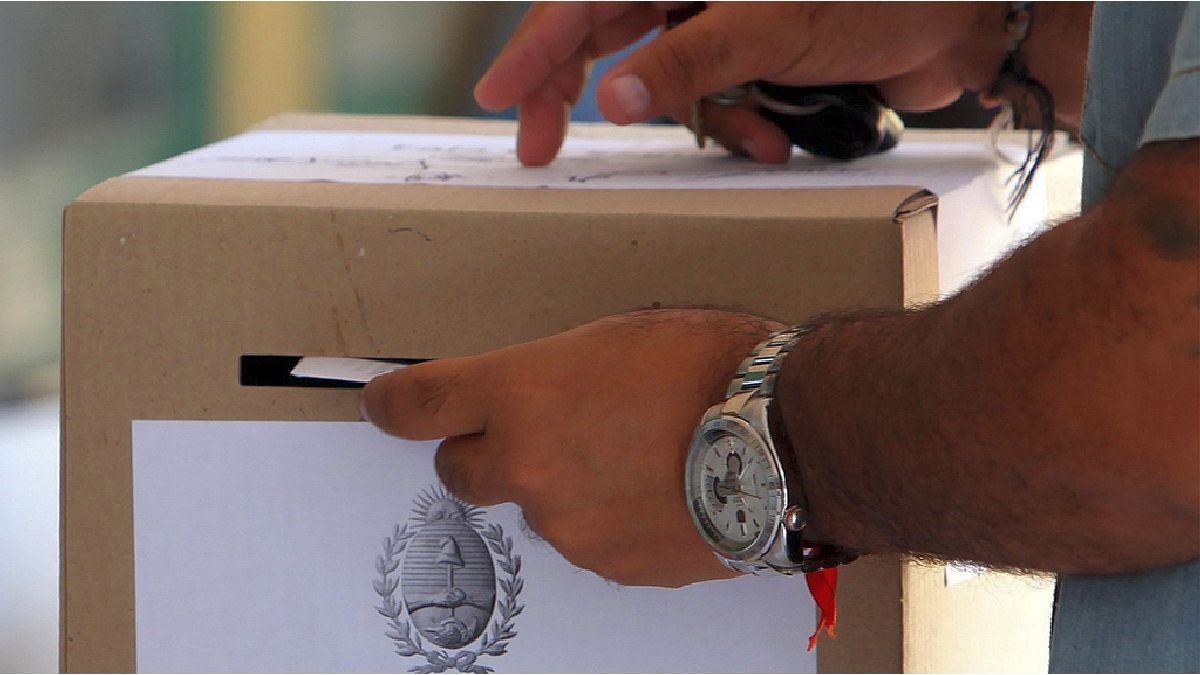The elections They are a central element of the democratic system. Science shows that citizens’ decisions when choosing a candidate are far from being a merely rational process based on a cost-benefit analysis of the different alternatives.
From various studies that were carried out on the human brain, there is sufficient evidence to affirm that in many cases our decisions rely on automatic processes and cognitive shortcuts that are far from being rational. With the aim of saving resources to be able to face the complexity of the world around us, Our mind usually activates non-conscious processes that allow us to solve the dilemmas we have, with the least possible cognitive effort..
These shortcuts in decision making are called “heuristics” by neuroscience. These are operations that are intended to facilitate the formation of judgments when we have little information or when we are faced with situations of uncertainty. In some cases, shortcuts can be effective in making a decision, particularly when we know little about what we have to solve, although, in other cases, they can lead us to make mistakes. Likewise, these processes “leak” into many of our daily decisions without us realizing it and we must be aware that political decisions do not seem to be the exception.
An example of heuristic shortcuts in politics can be seen when choosing a candidate based on his or her party identity. That is, when it is assumed that the candidate we choose shares some idea or opinion with the party or ideology that he represents, something that does not always happen.
Another example could be that of “endorsement”. In this case, the support received by a candidate from a third person becomes a decisive factor for the voter’s decision. In this way, one comes to think that if a politician is supported by a certain person, it is because he is a good candidate. Recent examples of this issue are Mauricio Macri’s support for Javier Milei, the letter signed by a group of intellectuals calling to vote for Sergio Massa or the position of the Taylor Swift fan club, among others.
Swifties vs. LLA.jpeg
The Swifties reiterated their rejection of Javier Milei.
The viability that we assign to a candidate can also affect our decision. Our brain likes to deal with fewer options, so we tend to narrow our choice to those candidates that we believe are really viable or have a chance of winning.
In addition to these examples, there are other factors that we take into account, such as the physical appearance of a candidate. The sum of that aspect and the feelings that her face awakens in us can influence the decision when voting. In a study published by Todorov in 2005, a group of people were shown photos of candidates they had not seen before and asked to evaluate their faces only by how competent they thought they looked. Interestingly, such inference not only predicted the politician who later emerged as the winner, but also anticipated the margins of victory. These and other findings suggest that quick inferences from facial features can also influence voters’ decisions.
Another type of error that distances our decisions from rationality are the so-called “biases.” These, unlike heuristics, are not isolated errors, but are systematic errors that lead in all cases to a biased interpretation of reality.
One of the most studied biases is confirmation bias, which is the tendency to pay attention to and remember those things that are consistent with our thoughts and ignore or forget those that are not. Although candidate debates are a healthy practice for democracy, electoral campaign specialists often point out that their impact on modifying citizens’ decisions is low, precisely due to confirmation bias. Thus, it is very likely that after observing an electoral debate, we remember the good interventions and actions of the candidate we pre-selected and ignore the good interventions and actions of the candidate from the opposite party. In the same way, we tend to ignore the mistakes made by the candidate we support and almost literally remember those of the opposing candidate.
Scientific studies seem to indicate that these non-conscious processes are present in some way in most people when they make political decisions, but that not all of us are affected equally. Thus, while those people who are more politically informed rely more frequently on partisan or ideological heuristics, those less informed people tend to make their decisions based on heuristics based on appearance. Without a doubt, one has a higher probability basis for successful estimation than the rest.
Heuristics also do not appear equally in all situations. The evidence shows that the use of the resource of heuristics is greater when the selection we face is more complex, either because there are a greater number of candidates or because we see them as very similar to each other.
It is important to mention that heuristics are not always considered negative in election processes. Some authors; as Lau & Redlawsk, 2013; or Colombo & Steenbergen, 2020; They even propose them as a compensatory act for the lack of knowledge of the majority of voters, so that people who have very little information about what they should choose make “reasonably” correct decisions.
When these elements are shared with political science specialists, they mention that precisely one of the advantages of highly institutionalized party systems is that they provide information shortcuts to voters, simplifying the task when entering the dark room. Thus, for example, whoever in the United States votes for a candidate of the Republican Party, assumes, based on his ideological orientation, what types of laws he will probably support or not. The same will happen with those who vote for a candidate from a socialist party.
In this sense, experts in the field warn that precisely when party labels lose meaning, the voter can be disoriented, which probably makes decisions tend to be based less on ideological or partisan heuristics, and more on those based on the personal appearance.
How to decide who to vote for?
But then, What can we do to choose our political representatives well? The ideal would be to inform yourself about the candidates’ positions and actively and rationally reflect on which ones are consistent with our way of thinking. That seems to be the best decision.
The author thanks Ignacio Labaqui for adding the perspective of Political Science to this column. Ignacio has a Bachelor’s degree in Political Science with a specialization in International Relations (UCA) and a Master of Science in Sociology (LSE). In addition, he works as a Professor in the Department of Social Sciences (UCA) and in the Master of International Studies (UCEMA).
Dr. in Psychology, Scientific Coordinator of the INECO Foundation and Director of INECO Organizations
Source: Ambito
David William is a talented author who has made a name for himself in the world of writing. He is a professional author who writes on a wide range of topics, from general interest to opinion news. David is currently working as a writer at 24 hours worlds where he brings his unique perspective and in-depth research to his articles, making them both informative and engaging.




